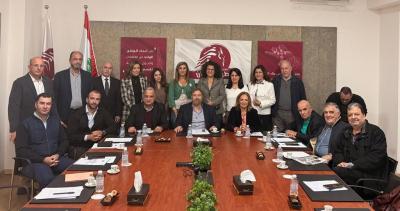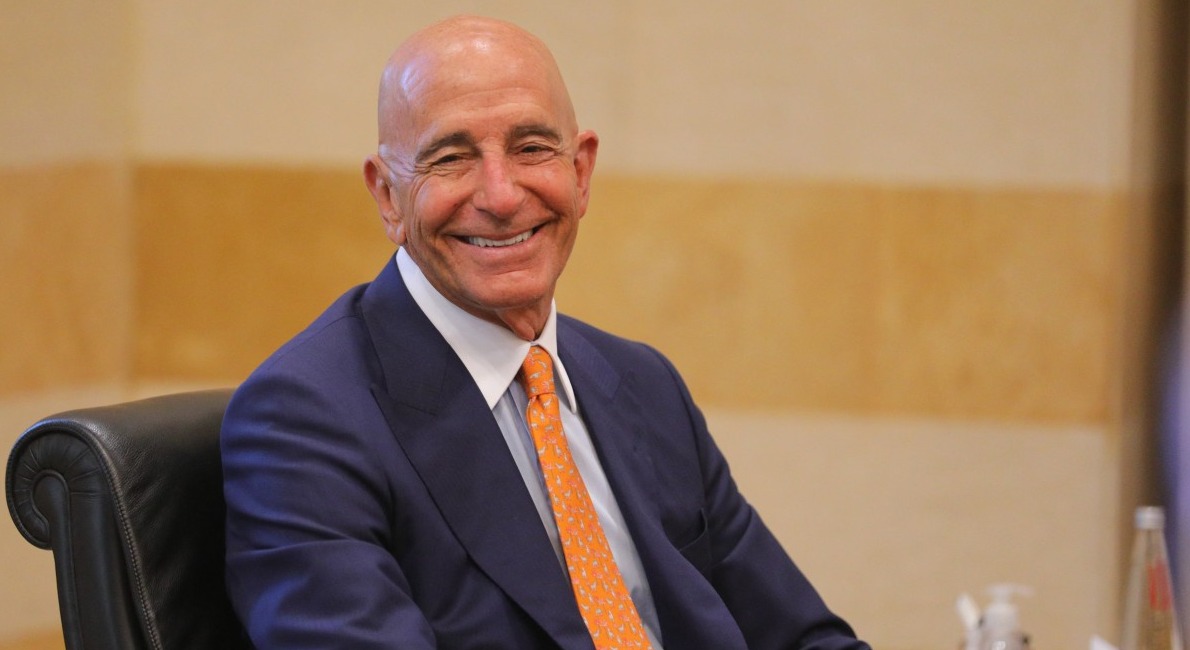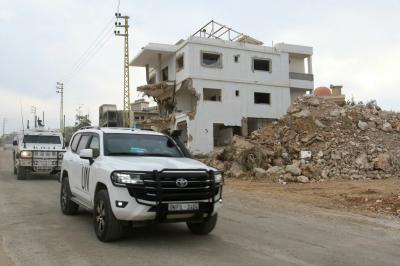In diplomacy, the message matters far more than the messenger. While envoys may shape their delivery with a polished style or a blunt one, the substance of their mission is finally dictated by their state policy, not by their individual personality. Only naïve societies obsess over the presentation or/and the individuals, rather than grasping the weight of the message itself. This dynamic was on full display in Lebanon when U.S. envoy Morgan Ortagus was replaced by Ambassador Thomas Barrack—an event some hailed, quite absurdly, as a victory for the Axis of Resistance.
Barrack arrived in Beirut on July 7, 2025, seeking a response to the proposal he had submitted on June 19. He received what was dubbed “Lebanese ideas for a comprehensive solution,” a document crafted by Lebanon’s ruling “Troika” in coordination with "Hezbollah"—brokered, as always, by the "Big brother," Speaker of Parliament Nabih Berri. From Baabda Presidential Palace, Barrack gave a lengthy statement coloured with outward optimism but trapped with veiled warnings—sweet poison in diplomatic form.
His Lebanese heritage showed; his diplomacy flirted with the classic “beard-kissing” style typical to Lebanese politics. But there was also a hint of Zahlé—a town known for its hospitality, joy for life, and spirited nature. Zahlé’s charm, however, often conceals its firm resolve when it comes to fundamental principles.
Barrack described the meeting as “satisfactory” and praised Lebanon’s swift, balanced response. Yet he overlooked a crucial point: the devil isn’t just in the details—it’s in the fundamentals, specifically "Hezbollah"’s weapons, which the Lebanese response failed to address explicitly. When pressed on modifications to the original proposal, he quickly tempered his praise, noting that the seven-page reply would be studied, with Washington’s formal reaction to coming via the U.S. ambassador.
Some in Lebanon celebrated Barrack’s repeated reference to "Hezbollah" as a “political party,” ignoring the fact that the U.S. Treasury had just sanctioned seven individuals linked to "Hezbollah" and its financial arm, Al-Qard Al-Hassan. Barrack’s background in business—not diplomacy or security—does nothing to alter the U.S. government’s long standing classification of "Hezbollah", dating back to the 1983 bombings of the U.S. Embassy and Marine barracks in Beirut, which killed 241 American servicemen.
Stripping away the diplomatic cosmetics, the essence of Washington’s message under Barrack becomes clear:
1. No Guarantees from Washington
The U.S. is refusing to bear responsibility or offer guarantees. On the November 2024 ceasefire, Barrack clarified: “It wasn’t a U.S. failure—there was never a formal security guarantee to Israel. What existed was a mechanism. The ceasefire terms were insufficient, so no side trusted the other.” Today, there’s not even a hint to any guarantees. Behind closed doors, Barrack admitted uncertainty about Israel’s reaction.
2. It’s Lebanon’s Problem, Not Ours
Barrack made this brutally clear: “The U.S. does not negotiate with "Hezbollah". We won’t tell you what to do. If you want help, we’ll assist—but the pieces of the puzzle are in your hands.” He asked rhetorically: “If "Hezbollah" is a political party, why would America or France or Britain dismantle it for you? This is your issue. Solve it yourselves.” His message: no foreign friend will do Lebanon’s job. Either the government acts like one—or risks chaos.
3. Take the Opportunity or Be Left Behind
Barrack didn’t mince words: “The region is transforming rapidly. If you want a change, you must make it happen. We’ll support you. But if you choose inaction, that’s fine too—just know that the region will move forward, and Lebanon will be left behind.”
4. Selling the Abraham Accords
Barrack spoke of peace and prosperity, painting Israel as desiring calm rather than domination. He hinted that "Hezbollah", too, could share in a future of regional integration—if it embraced peace. He even mentioned Israel-Syria dialogue and called on Lebanon to re-enter negotiations, arguing that past resolutions like UNSCR 1701 or references to 1967, 1974, or 1993 have lost relevance.
5. "Hezbollah" and Iran—Two Separate Files
He reiterated a key U.S. position: "Hezbollah"’s case is unrelated to U.S.-Iran negotiations. This aligns with Ortagus’ prior stance and undercuts the hopes of Lebanese officials banking on regional deals to ease pressure on "Hezbollah".
6. Trump’s Patience is Wearing Thin
Despite Trump’s friendly stance for Lebanon—calling it the “Pearl of the Mediterranean”—Barrack warned that time is limited: “There are other things Trump wants to do with his life. But if Lebanon seizes this moment, he’s ready. Just don’t count on infinite patience.”
From the outbreak of war on October 7, 2023, to the 66-day conflict of September 2024, the U.S. has repeatedly warned Lebanon against getting dragged into regional conflict. Yet these warnings have largely gone unheeded. On October 21, 2024, after yet another fruitless visit, envoy Amos Hochstein left Beirut with a somber message: “The suffering of the Lebanese people saddens me. Despite 11 months of engagement, we failed to prevent escalation. The solution was on the table—it was rejected.”
The question remains: will anyone in Lebanon learn from past failures? Or will the country continue to waste time, issue defiant statements, and dance at the edge of the abyss—only to repeat the cycle with Barrack as it did with Hochstein, and pay the price once more?
Please post your comments on:
[email protected]
 Politics
Politics













